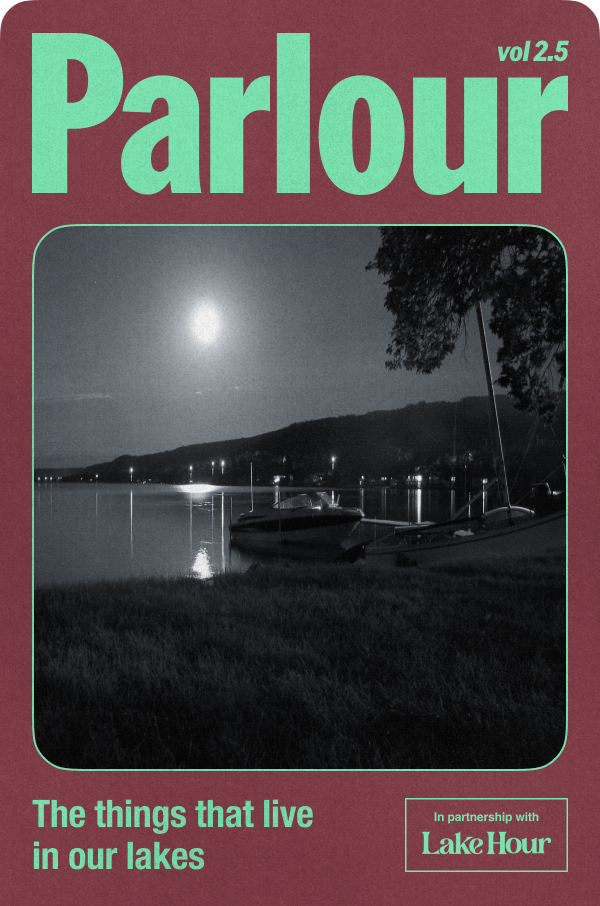
This issue is brought to you by Lake Hour, premium tequila cocktail seltzers made for unhurried gatherings and unforgettable stories.
When did you hear your first lake mystery story? Maybe it was your grandfather pointing toward the dark center of the lake, lowering his voice just enough to make you lean in: "You know, they say something's been living out there since before any of us were born." Or it was that summer when your older cousin scared the dickens out of you when they said something was moving beneath the surface…
These moments stick with us because they represent something we've lost in our rush toward rational explanations: the sophistication of embracing mystery. Whether it's lake monsters, phantom ships, displaced spirits, or unexplained phenomena, these stories remind us that some things are more interesting when left unexplained.
The most compelling people have always been comfortable with the unexplained. They're not the ones frantically pulling out their phones to fact check every strange story or rushing to explain every ripple on the proverbial water. Embracing mystery doesn't make you gullible, it makes you interesting.
Our ancestors understood this instinctively. When you're floating on a lake that is said to have ancient secrets, every dive beneath the surface becomes charged. Every early morning paddle carries just enough edge to remind you that the natural world still keeps the unknown.
Uncertainty breeds charisma. There's a particular kind of elegance in choosing curiosity over certainty, especially when it comes to our relationship with nature. It's the difference between someone who sees a lake as just a body of water and someone who sees it as a place with personality, history, and culture.
Issue forwarded by a friend? Subscribe here.
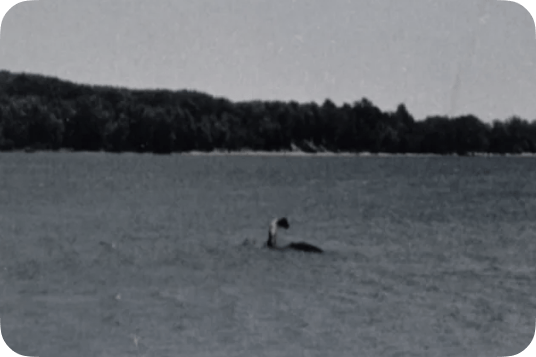
For over four centuries, the waters of Lake Champlain have contained things beyond explanation. The famous French explorer Samuel de Champlain documented an encounter in 1609. A large serpent (some say 20 to 30 feet long) came splashing out of the deeper waters. But the creature's story reaches back much further, rooted in the sacred tales of the Iroquois and Abenaki peoples who spoke of great beings in the depths.
What sets Champ apart is how the legend has evolved across generations without losing its folklore. By the Victorian era, families were packing elaborate picnics specifically to go monster watching with opera glasses.
Those Victorians understood that the search could be just as entertaining as actually finding something. They turned uncertainty into a social activity.
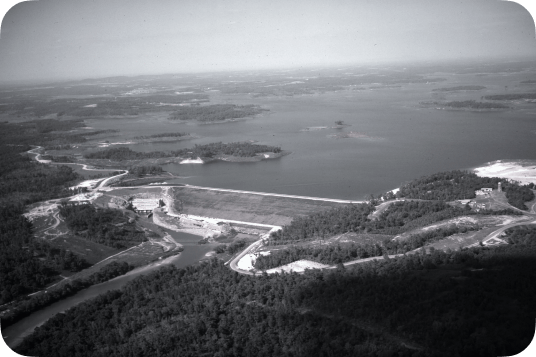
When engineers flooded the Chattahoochee River valley in the 1950s to create Georgia's recreational paradise, they submerged entire communities… homes, businesses, churches, cemeteries. The haunting of these former communities creates this atmosphere you just can't fake.
Like the story of the Lady of the Lake. A spirit of Delia Parker Young, who died in a car accident in 1958. Her body was found in the lake, missing hands and toes, which created all kinds of theories. When people claim to see figures walking along the old submerged roads or hearing church bells from beneath the surface, it creates this spooky element that there’s something deeper.
Mysteries like this often come from real human experience. It’s how we help ourselves deal with complex emotions about loss, progress, and the price of modern convenience.
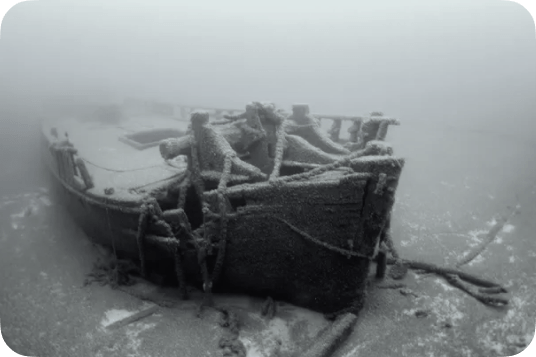
The Great Lakes have always understood drama, and Lake Michigan delivers with over 1,500 shipwrecks. And down in Tennessee, the Bell Witch legend has been bleeding its folklore for generations.
The Great Lakes stories hit differently because they're based on real tragedy. Take the Lady Elgin, which sank in 1860 and remains the deadliest shipwreck in Great Lakes history. The passenger steamship was carrying members of the Milwaukee Irish Union when it collided with another vessel during a storm. Only about 18 people survived. Stories of phantom passengers still making their journey across the lake aren't just spooky tales, it's how the community processed such a huge loss.
Bell Witch Waters is another wild story. Apparently the Bell Witch terrorized the Bell family starting in 1817, and the legend became so widespread that Andrew Jackson supposedly said he'd rather face the entire British Army than spend another night with the Bell Witch. When locals tell you to be careful around certain coves after dark, you listen, because these are people who've been living with these stories their whole lives.
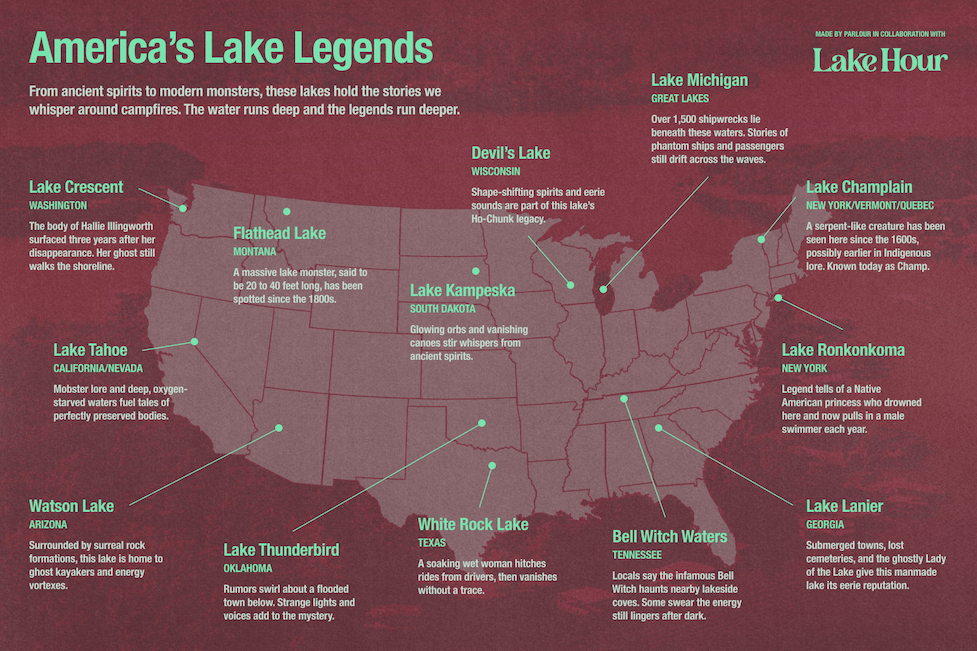
The combo of water, fire, and darkness creates perfect storytelling conditions. Maybe it's how a bonfire makes everyone look a little more mysterious, or how the sound of water provides the ideal soundtrack for tales about things lurking beneath the surface.
The performance aspect of storytelling is honestly something we could use more of. When someone tells a mystery story well, with the right dramatic pauses and perfectly timed reveals, they're creating an experience, turning an ordinary evening into something you'll remember.
The reason why the best lake gatherings always include a ghost story or two isn't about scaring people (although a good shiver never hurt anyone). The stories are bridges, connecting grandparents to grandchildren, longtime residents to newcomers, from the city to the country, bringing together people from different generations and walks of life. It's about a shared experience that bonds. It's about remembering what it feels like to be fully present for that one snap of a moment.
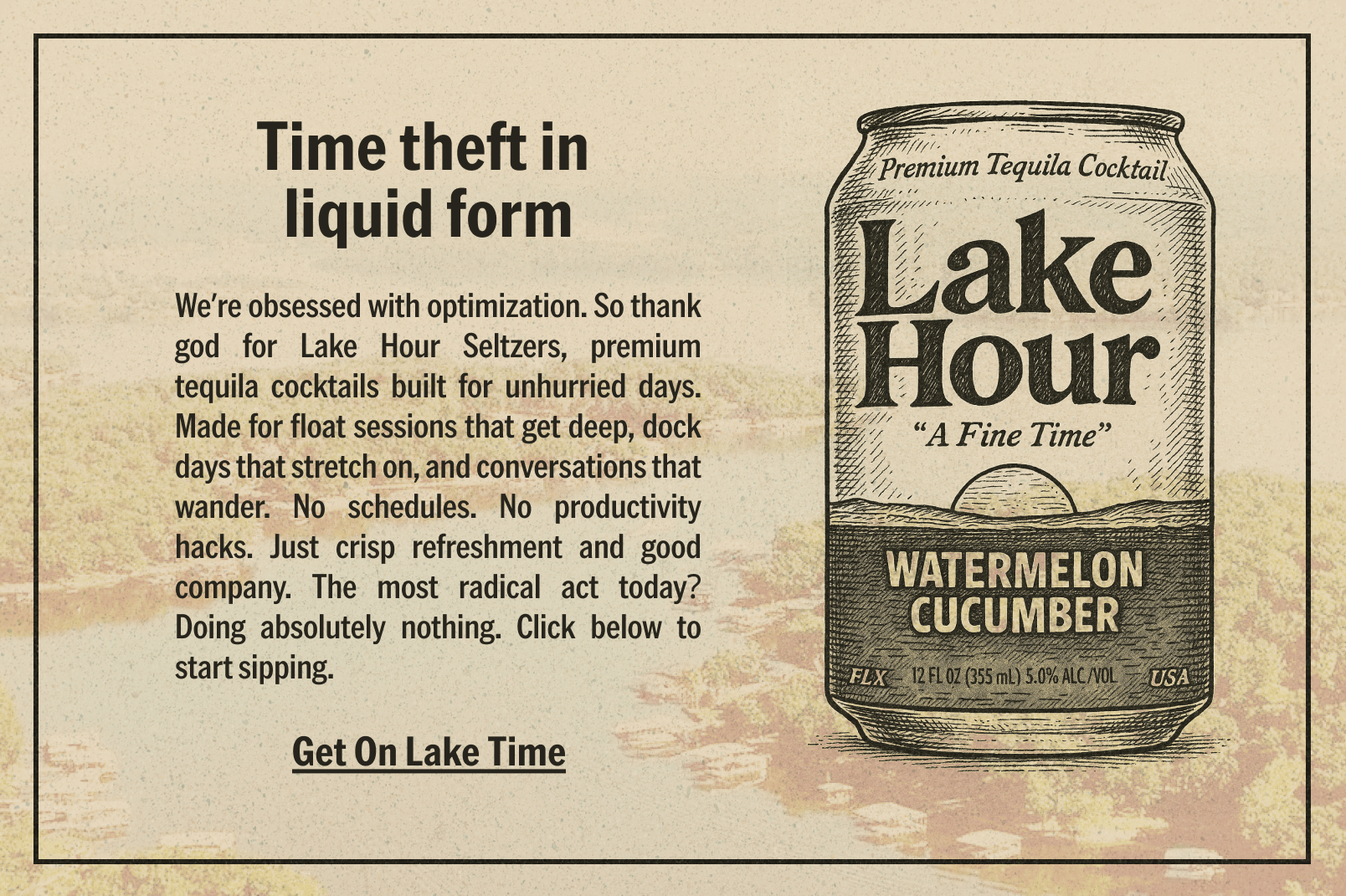
Lake mysteries don't cheapen the experience, they enhance it. When you know the local legends, every trip to the water carries extra meaning. The stories don't make the lake less real, they make it more compelling.
But it's not just about your personal experience. Lake mysteries transform your social presence entirely. Being the person who knows the local legends gives you cultural currency that money can't buy. You become a keeper of local culture, someone who can explain why certain coves feel different or why old timers have their particular superstitions.
The sophistication is not in believing every story literally, but in understanding their value as a cultural artifact. When you can share your lake's mystery with the right mix of skepticism and wonder, you become someone who brings depth to ordinary moments. A kind of person who can transform a simple lake gathering into something people will remember long after they've gone home.
I'm not saying lake monsters and ghosts are real (although they could be). What I am saying is that these stories serve a purpose that goes way beyond entertainment. They make our lakes places with personality, history, and just enough mystery to keep things interesting.
Lake legends remind us that the most sophisticated response to wonder isn't always understanding, sometimes it's just appreciation. They connect us to the people who came before us, the communities that grew up around these waters, and the understanding that some mysteries are worth preserving.
The next time you're at your lake, whether it's the family place you've been visiting since childhood or somewhere new you're exploring, take a moment to learn its stories. Ask the locals what they've seen. Pay attention to the places that feel different. Let yourself feel that childhood thrill of standing at the edge of dark water and wondering what secrets it might hold.
Because in the end, the things that live in our lakes aren't just creatures of legend. They're reminders that life is more interesting when we leave room for wonder, and that the best stories are the ones we're not entirely sure we believe.
Thank you for reading! Let us know what you thought of this issue by replying directly to this email. Cheers 🥂
Join 2,568 readers 💃🕺🏽